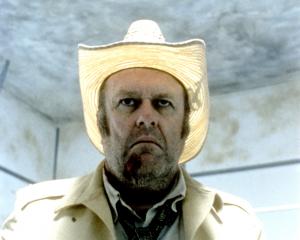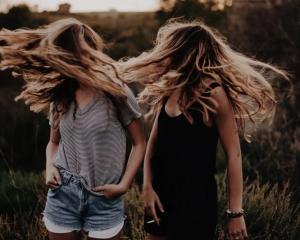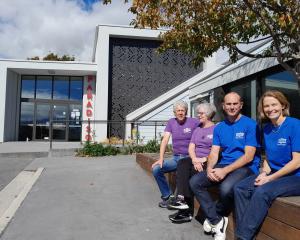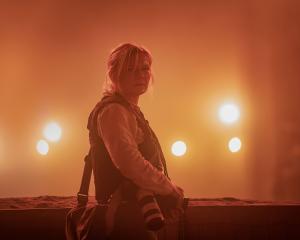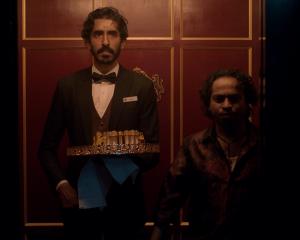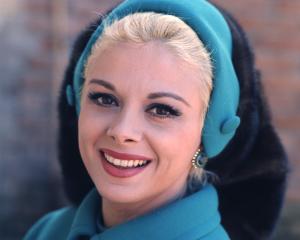
Melina Matsoukas directed some of the most acclaimed music videos of the 2010s, including Rihanna’s We Found Love, Solange’s Losing You and Beyonce’s Formation, for which she won a Grammy. She has also directed episodes of TV shows Master of None and Insecure. Her debut feature film, Queen & Slim, is written by Lena Waithe and stars Jodie Turner-Smith and Daniel Kaluuya as an African American couple on a first date who are forced to go on the run when one shoots a white police officer in self-defence. Matsoukas was born in New York, lives in Los Angeles, and is of Greek, Jewish, Afro-Cuban and Afro-Jamaican descent.
Q Your leads are played by black British actors, but the film seems very much about black America. What was it like working with two Brits, who might not have context for this story?
I disagree completely. My first memory of police brutality was when they killed this young man named Amadou Diallo [in 1999], an African immigrant living in the Bronx. He was killed with 41 shots when he reached for his wallet. He had just moved here, trying to make a better life for himself, but all they saw was a black man who was a threat. I remember growing up in the Bronx and visiting the apartment building where he was gunned down — that made an incredible impact on my life.
I don’t want to speak for [Daniel Kaluuya], but he had his own experiences with police brutality in London growing up. So to me, police brutality in America is something that is not an African American issue, it’s a black issue.
Q The film is also a love story. What stories of black love did you grow up with?
I didn’t really feel like I grew up seeing two dark-skinned people fall in love on screen. I had never really seen that connection between two people who looked like our Queen and Slim, like Jodie and Daniel. I really wanted to be part of redefining what black beauty — well, beauty — means. I also think about when I went to film school and they said: "Hey, casting a black woman as your lead won’t be profitable."
Q Who said that to you?
One of my teachers. They said it to the entire class, not just me, but I’m sitting in the class looking around like: "No-one else heard this?!" That really stuck with me.
Q Your parents were very politically active. Is that something you inherited?
My parents were definitely activists. I was brought up going to marches and fighting and understanding that we all have a purpose in life and we need to use our privilege to bring equality to the world.
Q Queen and Slim begin their journey in Cleveland and travel south to Cuba — it’s a reverse slave escape narrative.
Lena [Waithe] wrote Cleveland because it has the death penalty. Cleveland was also the last stop on the Underground Railroad before slaves would get to Canada. And, it’s where Tamir Rice [a 12-year-old African American boy who was killed in 2014] was gunned down by a racist police officer. I knew that it was important for our story to start there. I had to really fight for it and, of course, when we first got there [to film], there was a polar vortex, which didn’t help.
Q How does one navigate a polar vortex?
Every 15 minutes we’d have to go inside and drink soup and take breaks so people wouldn’t get frostbite. One day we couldn’t even shoot outside, we had to rig the car inside a warehouse. The equipment was failing ... It was actually horrendous.
Q There’s been some criticism of the depiction of violence and trauma in the film. What do you make of it?
Yeah, it’s understandable. I am a film-maker who likes to reflect the times and I feel there’s a need to [do that] to create change. In order to create discussion you have to disrupt, and it’s going to make people uncomfortable at times. So I actually welcome those kind of conversations.
Q You started out directing music videos. What did you learn from that part of your career?
From music videos, there’s a stigma this isn’t true film-making. That genre isn’t respected in the same way. Had I started out making a short film or even doing commercials, I feel like my career would have taken a different route. But I think it’s really great training for understanding how to build a world.
Q Can you talk about your relationship with the Knowles sisters, Beyonce and Solange?
It was Beyonce who took a risk on me when I was a very young film-maker in music videos. Both of those women are tremendous forces in their own right, and business women, so I’ve been taught well! In television it was [Insecure creator] Issa Rae, and now it’s Lena, but black women have really been the forces behind my success.
Q What did you think when Issa Rae said “Congratulations to those men” as she announced the best director Oscar nominees?
Ha! I put it up on my Insta story — I loved it, I think she’s always outspoken. I feel [the all-male list] is reflective of the bodies that are in power. Until there’s true diversity within those spaces, they’re going to reflect the values of those people.
Q In the movie, Slim asks: “Why do black people always feel the need to be excellent?” Do you also feel that pressure?
Yeah, absolutely, I think that’s something that all black people can relate to. The opportunities are few and far between, and when we’re given them we have to deliver and be prepared for them in a way that our white counterparts don’t. There’s this incredible burden to carry our community and make room not just for ourselves but for the next person, and the way to do that is by being excellent. — Guardian News and Media


